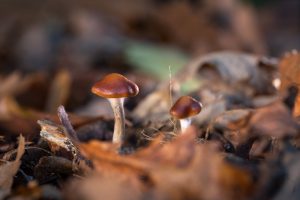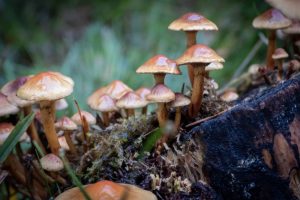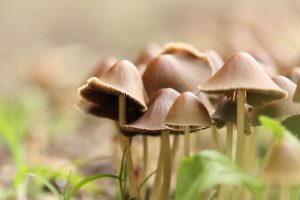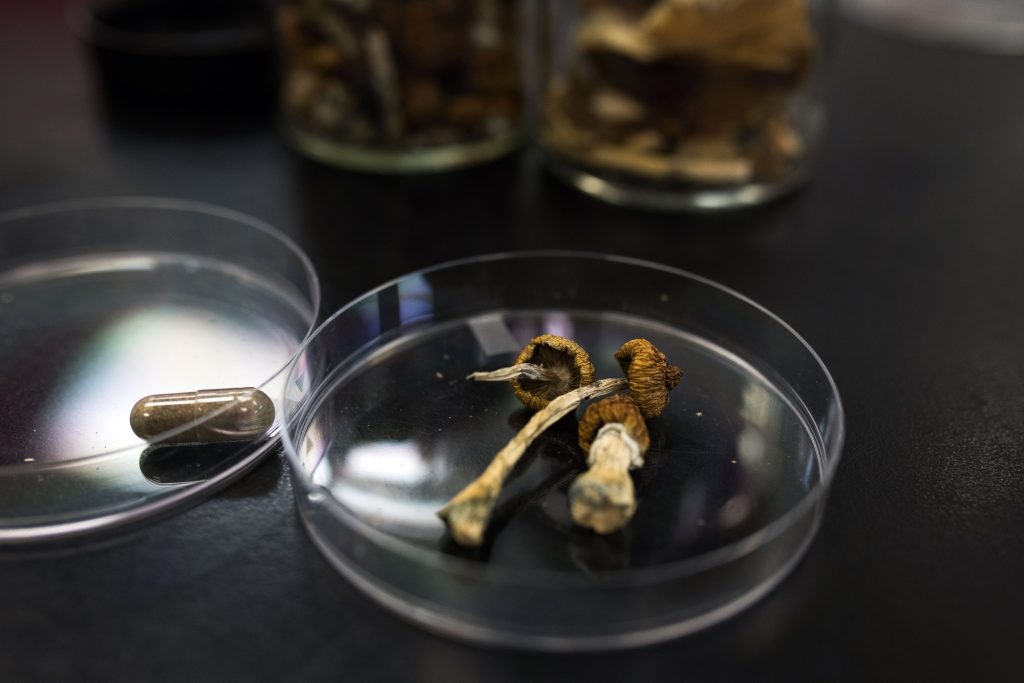Uncategorized
Psychedelic Resilience: Navigating the Psilocybin Depression Connection for Transformative Healing
In the pursuit of novel approaches to mental health, the spotlight has turned to psilocybin, the psychedelic compound found in certain mushrooms. With a growing body of research suggesting a potential connection between psilocybin and alleviating depression, the landscape of mental health treatment is undergoing a transformative shift. Join us on a journey through the realm of Psychedelic Resilience as we explore the intricate connection between psilocybin and depression.
The Reawakening of Psychedelic Medicine

In recent years, there has been a notable reawakening of interest in psychedelic medicine, particularly in the context of mental health treatment. Psilocybin, a naturally occurring psychedelic compound found in certain mushrooms, has been at the forefront of this resurgence. Once primarily associated with counterculture movements of the 1960s, psilocybin is now undergoing a profound reevaluation, transitioning from a substance embraced for recreational use to a potential therapeutic agent for depression, often referred to as Psilocybin Depression. This paradigm shift is driven by a growing body of scientific research that explores the profound effects of psilocybin on the human mind. As societal attitudes toward mental health evolve, so does our understanding of the potential benefits of psychedelic compounds. Psilocybin, in particular, is being examined for its ability to induce transformative and mystical experiences, which, when guided in a therapeutic setting, may lead to significant improvements in mood, reduced symptoms of depression, and a newfound perspective on life. The reevaluation of psilocybin underscores a promising frontier in mental health treatment, challenging conventional approaches and inviting a more holistic consideration of psychedelic medicine in the quest for emotional well-being.
Psilocybin’s Impact on Neural Pathways
Unveiling the intricate dance between psilocybin and neural pathways, a profound narrative unfolds in the realm of mental health, particularly in the context of Psilocybin Depression. Psilocybin, the active psychedelic compound found in certain mushrooms, exerts its effects by interacting with serotonin receptors in the brain, particularly the 5-HT2A receptor. This interaction triggers a cascade of neurobiological events that culminate in altered states of consciousness. In the context of depression, psilocybin is believed to induce transformative experiences by promoting increased neural connectivity, disrupting default mode network activity, and fostering a reset in thought patterns. The compound’s ability to diminish the activity of the default mode network, a network associated with self-referential thinking and the narrative of the self, allows individuals to transcend habitual thought loops that often characterize depressive thinking. This neurobiological reshuffling may provide individuals with a unique opportunity to confront and reevaluate the root causes of their depressive thoughts, fostering resilience and offering a potential path toward mental well-being. The journey through neural pathways under the influence of psilocybin becomes a therapeutic odyssey, challenging the conventional narrative of depression and opening doors to transformative resilience.
From Introspection to Healing: The Psychedelic Experience
Embarking on a psilocybin-induced psychedelic journey transcends the ordinary boundaries of perception, guiding individuals from introspection to profound healing. The unique and introspective nature of the psychedelic experience allows the mind to delve into the depths of consciousness, where Psilocybin, the mystical compound found in magic mushrooms, acts as a catalyst for transformation. In this altered state, individuals often encounter a heightened sense of awareness and a dissolution of ego boundaries, opening the door to profound insights and revelations. The psychedelic experience becomes a therapeutic voyage, offering a new lens through which to view life’s intricacies. Amidst the kaleidoscopic tapestry of thoughts and emotions, individuals often confront suppressed emotions and unresolved issues, fostering a therapeutic release. This journey can be particularly impactful in the realm of Psilocybin Depression, where the psychedelic experience has shown promise in alleviating symptoms through its capacity to recalibrate thought patterns and offer a renewed perspective on life. As users navigate the labyrinth of their minds, the introspection cultivated during the psychedelic experience becomes a powerful tool for healing, providing a holistic approach to mental well-being that extends far beyond the duration of the journey itself.
Breaking the Chains of Rumination

Dive into the profound potential of psilocybin in breaking the chains of rumination, a pervasive aspect of Psilocybin Depression. Rumination, the repetitive dwelling on negative thoughts, is a hallmark of depressive states, trapping individuals in a cycle of despair. Psilocybin, the psychoactive compound found in magic mushrooms, offers a unique key to unlocking these mental shackles. As individuals undergo a psilocybin experience, the compound interacts with the brain’s serotonin receptors, triggering a cascade of neural activity. This neurological dance may disrupt the well-worn pathways of rumination, providing individuals with a fresh perspective on their thoughts and emotions. The psychedelic journey facilitated by psilocybin has been likened to pressing a “reset button” for the mind, allowing individuals to detach from ingrained negative thought patterns. This temporary shift in consciousness provides an opportunity for introspection and self-reflection, empowering individuals to break free from the cyclical grip of rumination. The potential result is a more resilient mindset, liberated from the burdensome weight of persistent negative thoughts, and a pathway towards healing in the realm of Psilocybin Depression.
The Role of Set and Setting in Psychedelic Therapy
In the realm of psychedelic therapy, the significance of set and setting stands as a cornerstone in determining the overall therapeutic experience. Set refers to an individual’s internal mindset, encompassing their emotions, expectations, and mental state while setting pertains to the external environment in which the psychedelic journey unfolds. Understanding the interplay between set and setting is paramount for maximizing the therapeutic benefits of substances like psilocybin. The mindset of the participant, influenced by factors such as intention, mood, and mental preparedness, can profoundly shape the trajectory of the psychedelic experience. Similarly, the physical environment, including the ambiance, lighting, and comfort, plays a crucial role in establishing a supportive space for emotional healing. A carefully curated setting can provide a sense of safety and tranquility, essential for navigating the potentially intense emotional terrain that may arise during a psychedelic session. The harmonious interconnection of a positive internal mindset and an external setting conducive to emotional exploration creates an environment where profound insights, healing, and self-discovery can unfold organically. Thus, in the tapestry of psychedelic therapy, set and setting emerge as guiding threads, weaving together a transformative and therapeutic journey.
Navigating the Psychedelic Experience: Professional Guidance

Highlight the importance of professional guidance in navigating the psychedelic experience. Discuss the role of therapists and mental health professionals in providing a structured and supportive framework for individuals undergoing psilocybin-assisted therapy.
Challenges and Future Directions
Acknowledge the challenges and ethical considerations surrounding the use of psilocybin for depression. Explore the potential future directions of research and integration into mainstream mental health treatments, as society grapples with the evolving landscape of psychedelic resilience.
The Transformative Potential of Psilocybin in Mental Health
As the psychedelic renaissance gains momentum, the Psilocybin Depression Connection emerges as a beacon of hope in the realm of mental health. From altering neural pathways to breaking the chains of rumination, psilocybin offers a unique avenue for individuals seeking resilience and healing. As we navigate the evolving landscape of psychedelic therapy, the connection between psilocybin and depression underscores the potential for transformative and holistic approaches to mental well-being.


